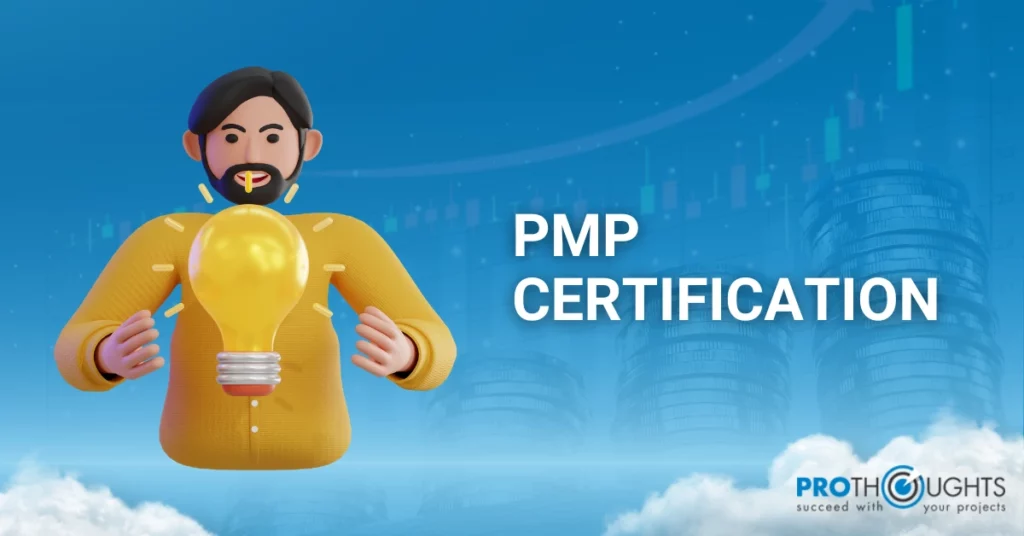
Are you considering obtaining a PMP certification in 2024? With shifts in the job market and heightened competition, it becomes essential to evaluate the value of making such an investment. The industry widely esteems a PMP certification, providing avenues for expanded career prospects. However, the query arises: does it retain its value in the 2024 landscape? In this article, we are going to explore the benefits and value of acquiring a PMP by exploring different factors such as the fact that demand for certified project managers is on steady growth, potential hikes in salaries earned from getting it, or exploration into why industry regards qualification.
Is the PMP Certification a Worthwhile Investment?
PMP certification is internationally regarded as a significant influential facility for those who aspire to proceed in the sphere of project management. First, when evaluating the benefits of getting PMP certification in terms of career progression one should pay attention to several aspects.
1. Recognition within the industry
- International Benchmark – Referred to by the reputable Project Management Institute (PMI), PMP certification is a test of quality assurance.
- Versatility across Industries – The effectiveness in various industries increases its versatile nature, making it a valuable possession by professionals operating within multiple sectors.
2. Professional Pathways
- Enhanced Employability – Employers in the project management field are in high demand for PMP-certified professionals. Also, provides a distinct advantage in the job market.
- Expanding Career Prospects: Obtaining PMP certification increases the range of possible career options available by opening doors to more elite project management roles, such as senior project manager, program manager, or director of Project Management.
3. Improving Skills
- Holistic Understanding – Holistic Comprehension PMP certification involves different aspects of project management knowledge areas such as scope, time cost quality risk communication and stakeholder. This guarantees a comprehensive skill set.
- Adherence to Excellence – PMP places emphasis on industry best practices, furnishing professionals with a uniform project management approach applicable across diverse projects.
4. Networking and Community
- Association with PMI – Attaining PMP certification frequently includes joining the Project Management Institute (PMI). PMI membership offers entry to an extensive network of professionals, events, and resources, fostering networking possibilities and continual learning.
- Exchange of Knowledge – Active participation in the PMP community enables professionals to exchange experiences, insights, and project management best practices with peers, contributing to continuous professional growth.
5. Salary Increase
- Elevated Income Prospects – Possessing a PMP certification is linked to increased earning potential. Furthermore, the PMP certification salary is dependent on the employment company in India. Again and again, salary surveys show that PMP-certified professionals tend to earn significantly higher average salaries than their non-certified counterparts.
6. Professional Development
- Sustained Education: To uphold your PMP certification, you must earn 60 PDUs. This commitment does not just encourage constant learning but also helps improve skills continually. It also helps PMP-certified individuals to be up-to-date with current developments in their industry and follow best practices.
7. Advantages of the Organization
- Enhanced Project Results: Including PMP-certified experts in teams enhances project results, enabling employers to lead projects efficiently and achieve superior outcomes.
- Standardized Procedures: PMP certification improves the effectiveness and standardization of project delivery by supporting a consistent process related to the PMP process.
As a result, getting the PMP certification can significantly enhance the chances of finding work in project management. Aside from validating their skills and know-how one can also open new horizons to a global community of similar professionals. The decision to go for PMP certification should however be guided by each individual’s personal career goals, industry norms as well commitment toward a lifelong learning process.
Which Sectors Employ Project Managers?
Several industries requiring oversight for project planning, implementation, and delivery employ project managers. Let’s break down the sectors commonly employing project managers:
1. Information Technology (IT)
- Software Development – Involves the task of managing software application creation and deployment within given budgets and time intervals.
- Infrastructure Projects – Initiatives for network enhancements, hardware implementations, or data center migrations.
2. Construction and Engineering
- Building Construction – The management of resources, timing, and cost in construction projects while coordinating activities.
- Civil Engineering – Implementing projects related to infrastructure, including road constructions, bridges, or dams.
3. Healthcare
- Hospital Construction: Vital role in the organization and coordination of intricate healthcare construction projects.
- IT Implementations: Successfully integrating new technologies in healthcare organizations.
4. Finance and Banking
- System Implementations: Managing projects for new software system deployments in financial institutions.
- Regulatory Compliance: Making sure that projects in the finance sector comply with regulatory requirements and industry standards.
5. Telecommunications
- Network Expansion: Management of projects concerning the development or improvement of telecommunication networks.
- Product Launches: Helping in the successful launch of new products and services for telecommunications.
6. Manufacturing
- Product Development: Manage the whole new product development lifecycle, from concept through production.
- Process Improvement: Leading projects for improving manufacturing operational efficiency.
7. Government and Public Sector
- Infrastructure Projects: Managing large-scale infrastructure projects undertaken by governments.
- Policy Implementation: Overseeing projects related to the implementation of new policies or government programs.
8. Consulting
- Project-Based Consulting: Playing a vital role in delivering consulting services within defined scopes, timelines, and budgets.
- Change Management: Leading initiatives related to organizational change and process improvement in the consulting sector.
In present times, individuals possessing project management skills are needed across many industries because their role is to ensure that projects run efficiently from start to close.
The Impact of PMP Certification on Salaries
Attaining PMP certification facilitates career progression and salary enhancement. It serves as a universally acknowledged indicator of proficient project management skills, enhancing your market value.
Furthermore, individuals holding PMP certification frequently command higher salaries than their non-certified counterparts. Employers are willing to pay more because the certification shows you have many skills and know the best ways to manage projects. Additionally, numerous surveys validate this, demonstrating that organizations are willing to invest in and recognize individuals who excel in project management through PMP certification. However, it extends beyond mere financial gains, as PMP certification also creates avenues for career advancement. The certification demonstrates your ability to effectively manage complex projects, paving the way for promotions to higher roles such as senior project manager. This helps your personal growth and boosts your overall career journey.
Companies also benefit from having PMP-certified employees. These individuals bring in standardized processes and well-accepted methods, making projects more successful and the organization more efficient. Employers like having certified professionals because they trust them to deliver successful projects.
In short, PMP certification is more than just a salary boost. It establishes you as a professional committed to excelling in project management. Consequently, you become a helpful tool for organizations striving to achieve success.
Necessary Requirements for Obtaining PMP Certification
To obtain PMP Certification, one must first meet certain requirements as prescribed by the Project Management Institute. These requirements ensure that candidates possess the necessary education, experience, and skills for successful project management. Specifics concerning the requirements of PMP Certification within educational qualifications, project managing work experience. So, if you’re uncertain about your eligibility for PMP certification, you can assess it using our PMP eligibility calculator.
What are the Essential Requirements for PMP Certification?
1. Educational Background
A. Degree and Experience Requirements
The candidate’s educational history is a critical factor in meeting the PMP Certification criteria. PMI acknowledges both undergraduate and advanced degrees as meeting the qualifications for PMP Certification.
It is closely related to project management experience understanding the nature of projects and responsibilities that meet PMP certification requirements. 5 Core Process Groups in Project Management The project management process groups which include five cores are collectively known as the Five PMI.
- Bachelor’s Degree – Candidates with a 4-year bachelor’s degree or international equivalent are required to have at least 4,500 hours of project management background. This PMP experience needs to be obtained continuously over at least three years during the six years before applying for PMP Certification.
- High-level Degrees (Master’s/Ph.D.) – Applicants with higher degrees like a Master’s or Ph.D. will be M allocated less project management experience requirements to meet the job qualifications for these positions. Also, those seeking advanced degrees should provide evidence of at least 3500 hours working on projects in a consistent three-year period before submission for PMP Certification.
B. Non-degree Holders and Additional Experience
The PMP Certification criteria differ slightly for candidates lacking a four-year bachelor’s degree or its equivalent. In this case, the idea is to make up for the lack of degree by having more project management experience.
- High School Diploma – Candidates without a degree such as a high school diploma or its international equivalent need to accumulate at least 7,500 hours of project management experience. These candidates, like the degree holders, must have actively accumulated at least five consecutive years of experience in one project or job within the six years leading up to their application as per PMP Certification criteria.
- Associate’s Degree – Individuals with a two-year associate’s degree or its international equivalent should provide proof of at least 5,000 hours in project management. Individuals must also accumulate project management experience that they need actively across at least five consecutive years within the six-year duration before their PMP Certification application
Furthermore, it guarantees that individuals with varied educational backgrounds can qualify by showcasing their project management skills and professional history. As a result, the precise project management experience criteria differ based on the academic level, allowing a more extensive pool of candidates to pursue and achieve PMP Certification.
Mechanics of PMP Certification
Understanding the mechanics of PMP certification involves grasping the PMI’s key components, processes, and requirements. These are how things work in the process.
- Examine Eligibility Requirements: Candidates are cautioned to check carefully the PMP Certification requirements regarding education and experience before applying.
- Online application – The PMP Certification Application must be filled out on the site of PMI. Additionally, candidates actively engage in the application process by furnishing comprehensive details about their educational background, project management involvement, and contact particulars.
- Detailing Project Management Expertise – Within the application, candidates must showcase their proficiency in project management, delineating the projects they’ve participated in, specifying their roles, and indicating the hours dedicated to each PMP process.
- Verification of Educational History – In the event of being randomly audited, candidates must submit documentation to validate their educational background and project management experience. This emphasizes the importance of providing precise and honest information during the application process.
- Application Submission and Payment – Once the application is filled out, candidates can submit it along with the necessary payment. The application fee may differ for PMI members and non-members.
- Application Evaluation – PMI typically reviews applications within a few business days. After the audit selection, we will notify the candidate and provide instructions on meeting the stipulated requirements.
- Endorsement and Eligibility Period – After a successful evaluation, PMI will endorse the application, allowing the candidate access to the eligibility period. During this timeframe, they can schedule and complete the PMP Exam.
Moreover, a comprehensive understanding of and adherence to these steps in the PMP application process is imperative for candidates striving to attain PMP Certification. Hence, providing information accurately and entirely under PMI guidelines contributes to a seamless and successful application journey.
Conclusion
It is an essential investment, offering global recognition and heightened career prospects. It validates your expertise in project management, making you a preferred candidate for leadership roles in diverse industries. Beyond immediate career benefits, PMP signifies a commitment to ongoing learning, a valuable trait in today’s competitive job market.
Our PMP Certification online training is specifically designed for your success. Enroll today to kickstart your journey toward PMP certification and unlock a world of opportunities in project management. So, let’s elevate your career with the assurance of PMP proficiency in 2024.
